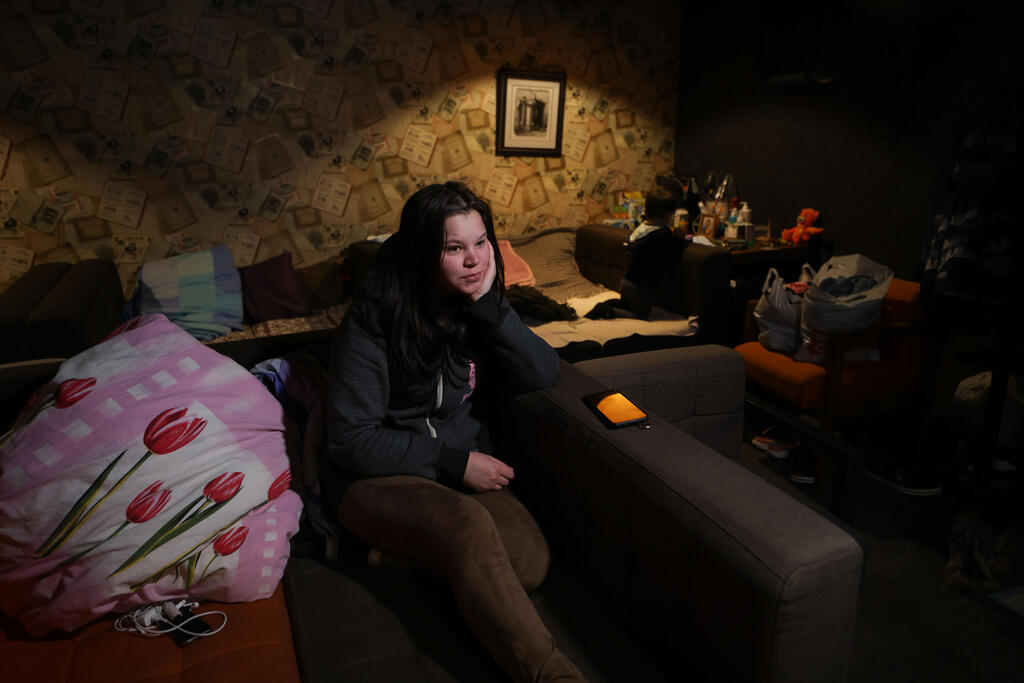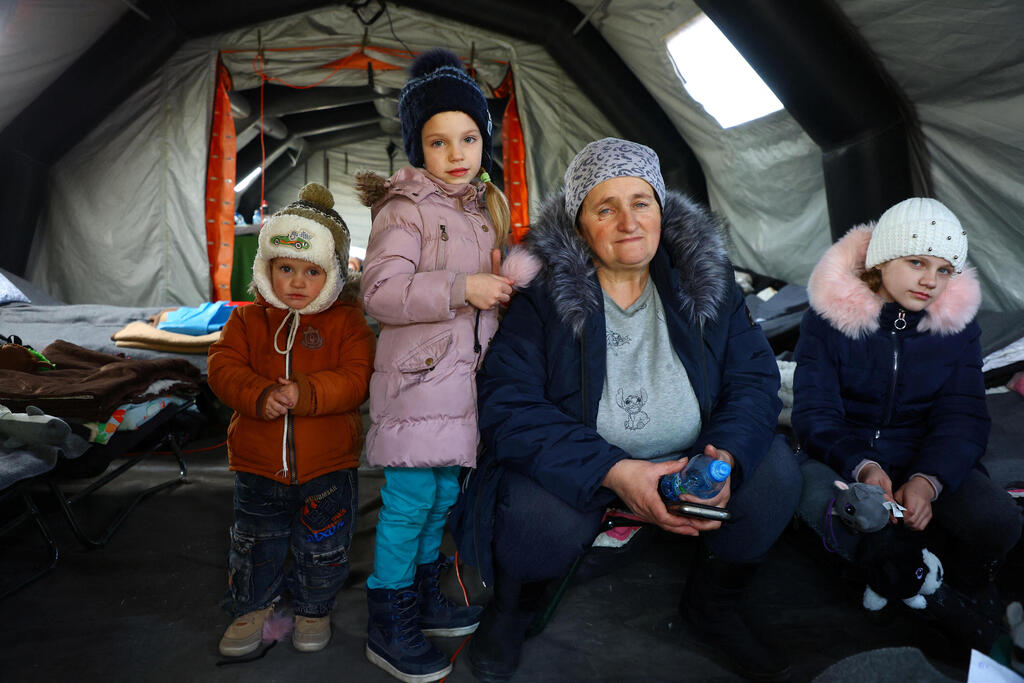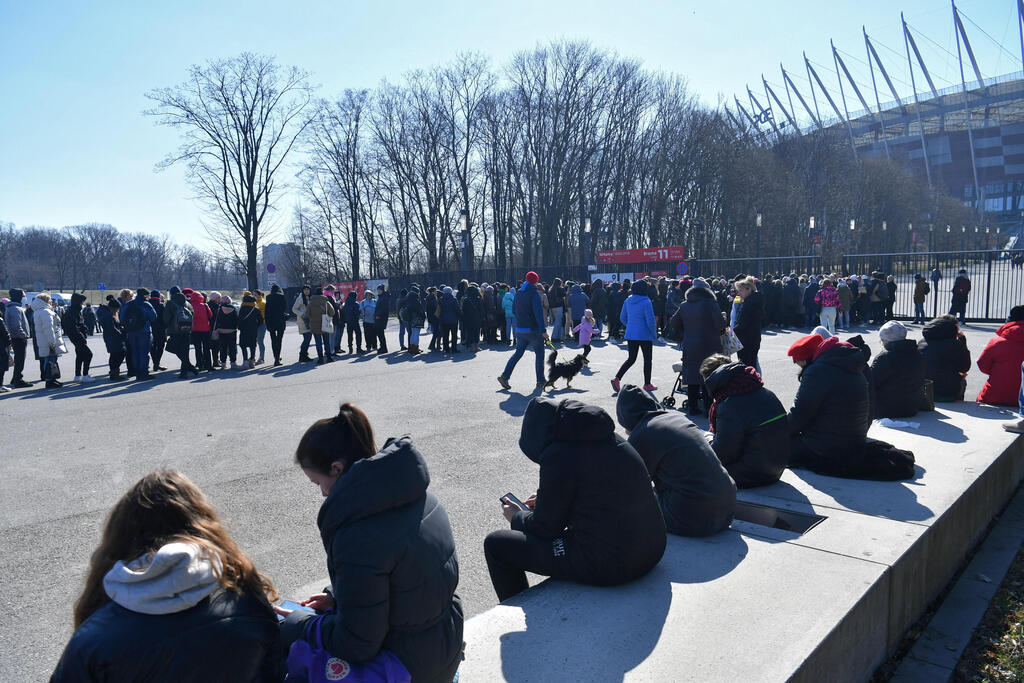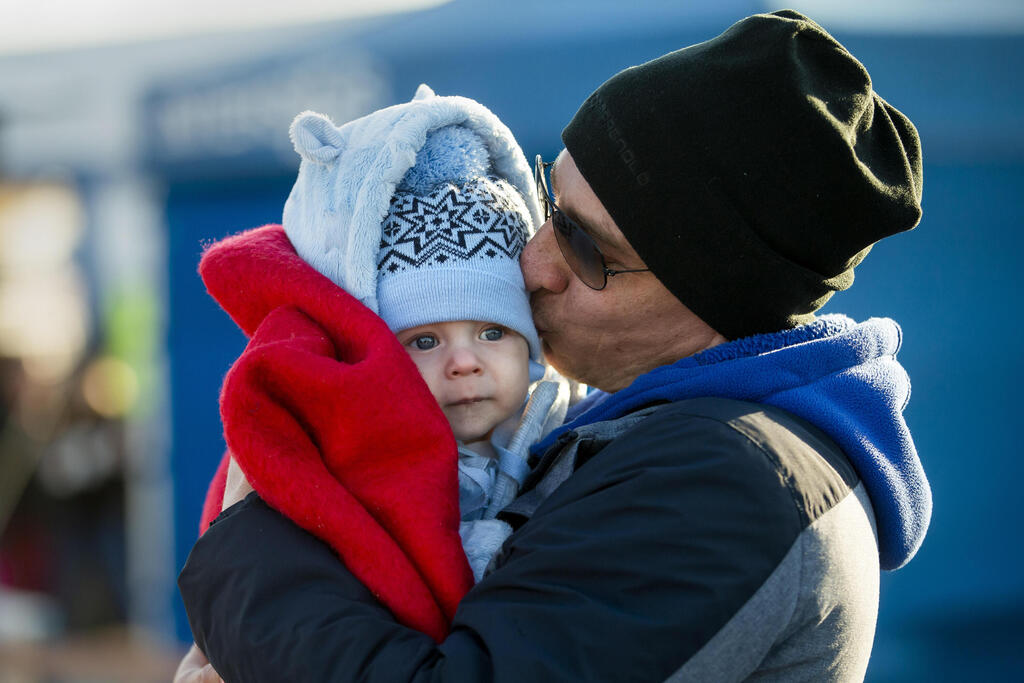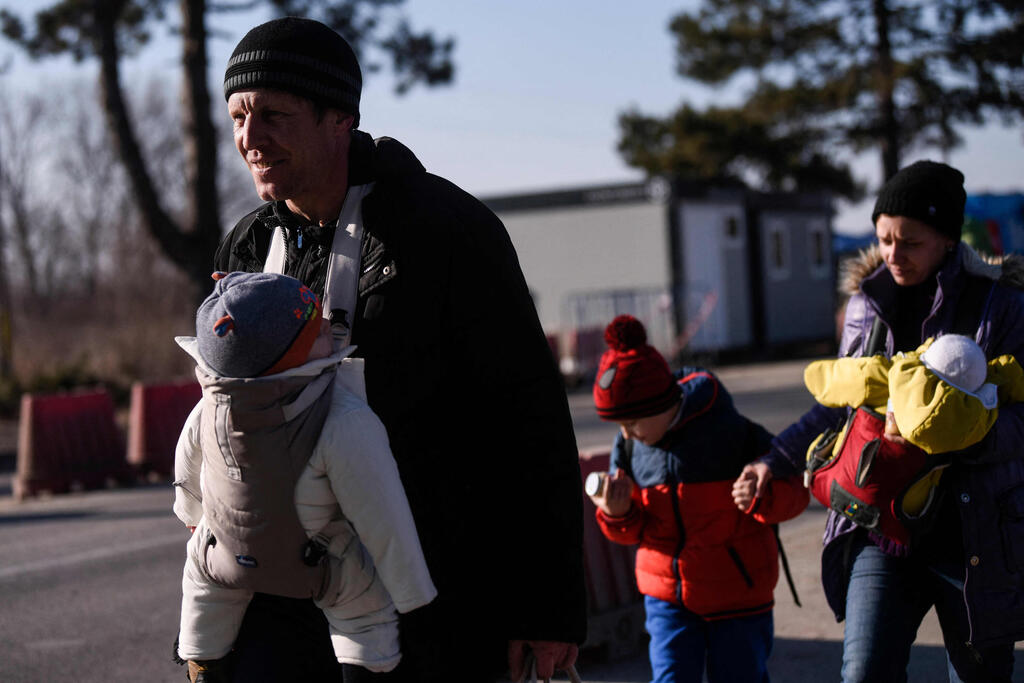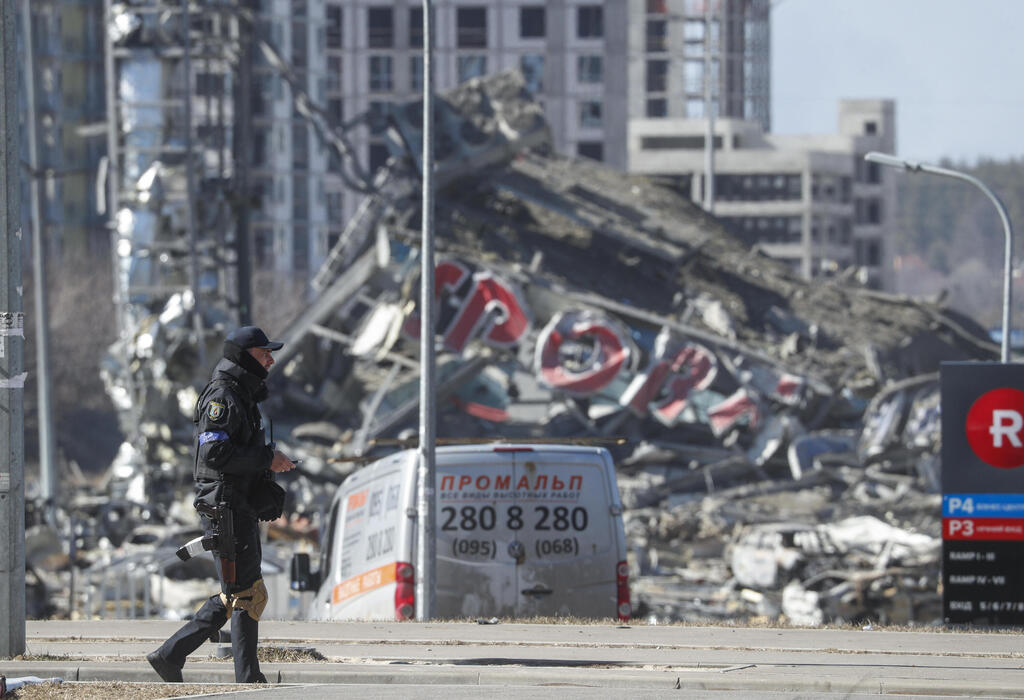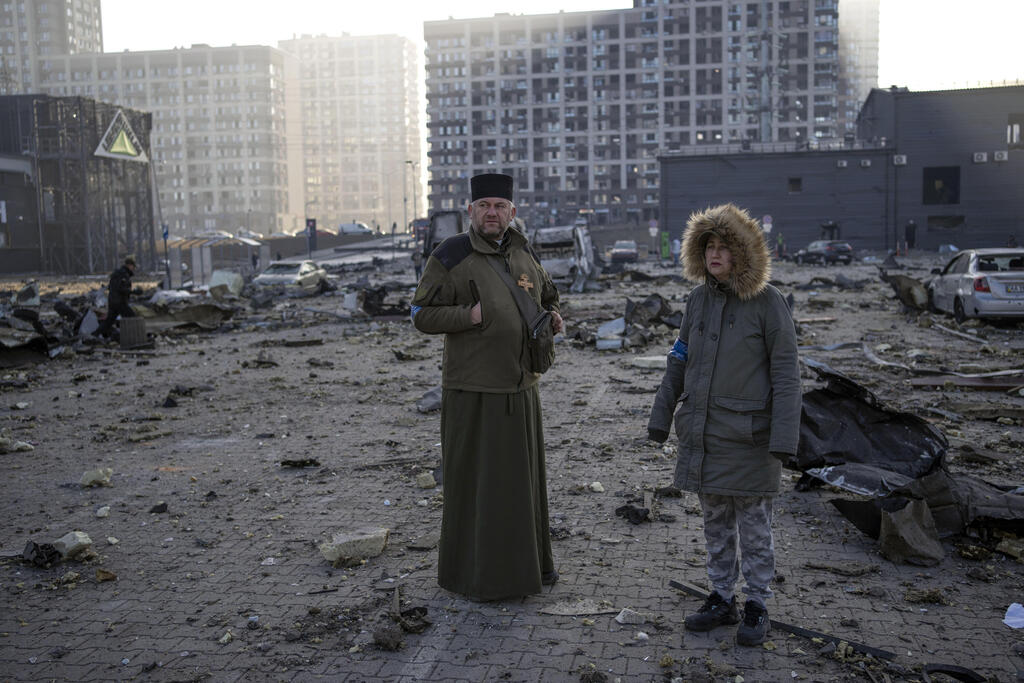Getting your Trinity Audio player ready...
“I can wake up in the morning feeling good because I’m alive, but when I open the news and see what happened while I was sleeping, there is fear. But we keep going on with our day,” Miriam Skilinda, a woman from Kyiv who fled her country and is in the Czech Republic waiting for a flight to Israel, says.
“Then, suddenly, someone that you know is somewhere dangerous, or you hear that someone died, then you cry, and you feel you have no more strength left, that there is no more hope,” Skilinda adds.
“Afterward, there is news that Ukraine is winning some battle, even if it’s small. Then you feel pride in your country and its army,” she says. “That’s how it is. That’s how we are living now.” And there are millions like Skilinda.
More than 3 million people have fled their homeland and become refugees since Russia invaded Ukraine on February 24, and millions more have been displaced or under siege within the country.
Victims of war and forced displacement often face unimaginable situations that can have myriad ramifications for their mental health.
Dina Dror, a social worker and psychotherapist volunteering with the IsraAID organization at Moldova’s border with Ukraine discussed the refugees she has seen crossing the frontier.
“Many people were shaking or in shock. Some couldn’t focus their gaze on anything; some were crying. It is like they couldn’t connect with the situation – they were stuck inside it,” she says.
On the other hand, she added, many children were quick to adjust. “They were laughing and playing but their mothers were in a very stressful state.”
Dror said many of the women she met at the border, or even in the shelters in Moldova where she volunteered, couldn’t feel safe yet.
She believes this is because they know they are in just another way station, that they haven’t reached their destination yet.
Many of the refugees exhibit hypervigilance, Dror says. “They are oversensitive to signs of danger; they struggle to be calm.
“Every time something falls on the floor or they hear the megaphone they use in the shelter to announce things, they just lay on the floor, because it sounds like the sirens that they were hearing when they were being bombed in Ukraine. Most kids start to cry,” she adds.
People in the shelters are dealing with sudden loss, Dror notes. “Many lost their loved ones. Others lost their homes, their jobs, and their lives as they knew them.”
A big challenge for them is the uncertainty, because the information they have changes every day, she says.
“One day a country receives refugees, and the next day, they don’t anymore. It is very hard to rely on anything. It is very hard to be calm and avoid getting stressed,” Dror says. All this has implications for people’s lives and mental health.
However, Prof. Renos Papadopoulos of the University of Essex, a psychologist and director of the Centre for Trauma, Asylum and Refugees, said that one must not lose the complexity of the situation and of the human mind by generalizing. “I’m concerned about the world simplifying things,” he says.
“There is enormous human distress here, and we try to grasp it. While doing that, we end up simplifying it. In effect, we sort of inadvertently dehumanize the people we want to help,” he adds.
Papadopoulos explained that every person was experiencing the situation in a unique way, with various combinations of feelings that none of us can imagine.
“Forced displacement causes different reactions in people’s minds. Some may have a feeling of relief that they managed to escape and that they are alive; other people may feel sad because of what they left behind,” he says. “But we must keep in mind that always with this sort of thing, there is a mixture.”
The professor explains that people in these situations themselves tend to simplify things as a mechanism of “digestion,” which ends up polarizing memories, dividing them into good and bad, and in the end, reducing the complexity of the experience.
After experiencing extreme trauma, we usually “find it very difficult to overcome it, and we tend to become overwhelmed. It’s difficult to overcome the overwhelming nature of it because it is something new and it is so unexpected and so unfamiliar,” he says.
As human beings, Papadopoulos continued, “we try to grasp things because we cannot just forget them. So our mind tries to make something meaningful of it, to have some kind of sense of what happened. Inevitably we tend to oversimplify it and polarize [the memories]. And then we tend to shut out certain things that are too painful and remember some other things which we divide in terms of good and bad.”
He added regarding refugees who lost everything: “If you are standing there when they cross the border and you ask them what their predominant feeling or memory is, they may tell you about their cat or the generosity of a neighbor, and nothing of what we would expect,” Papadopoulos says.
Skilinda shared some memories from when she fled Ukraine.
“During the first days of bombardment, when I would sit on the bathtub so as not to be close to windows, I felt so nervous. Then, while fleeing, I saw Kyiv, which is my home, my favorite city. It was painful to see it in chaos. When I went to the metro station and saw many kids and many pets taking shelter there, I really understood the magnitude of what was happening,” she says.
One of the hardest things for her was seeing the text messages from friends and family who were in “hot areas” saying their goodbyes to her, sending their love, because they had lost all hope for themselves. “I do not wish anyone to be in that situation,” Skilinda says.
Papadopoulos said people trying to help the refugees should “give space to every human being to connect with what is important to them at that [particular] time.”
He warned that if this was not done, we could be hurting the refugees.
“We [victims of trauma] lose complexity, we oversimplify things, we polarize, and we look at things in black and white,” Papadopoulos says. “That deprives us as human beings of the opportunity to creatively digest these situations and move forward.”
Dror shared the story of Tania, a Ukrainian woman she met at the border.
The day they met, Tania was shaking and crying quietly. When Dror approached her and asked her if she needed help, Tania told Dror her story. “Everybody wants to tell their story,” Dror adds.
“Tania said that she brought her little daughter with her but left her husband and her two sons, 18 and 20, to fight in the war. You could feel that she left half of her body there,” Dror says. “She couldn’t relax; she felt like she made a horrible choice. She needed to save the girl.”
The next day, Dror went to one of the shelters in Moldova and saw her again. “She was smiling. I saw her beautiful hair. The daughter, who was quiet all the time at the border, was now suddenly talking.
“Tania told me, ‘I got here to the shelter, I had a hot shower, they gave me a bed, and now I am doing my own therapy.’”
Dror explained that her own therapy was walking around a nearby lake when she felt that the “depression,” as she called it, was coming back.
Dror described how that story gave her hope because she could see that Tania, in her own creative way, was trying to overcome the terrible situation she was in.
The story is written by Debbie Mohnblatt and reprinted with permission from the Media Line


